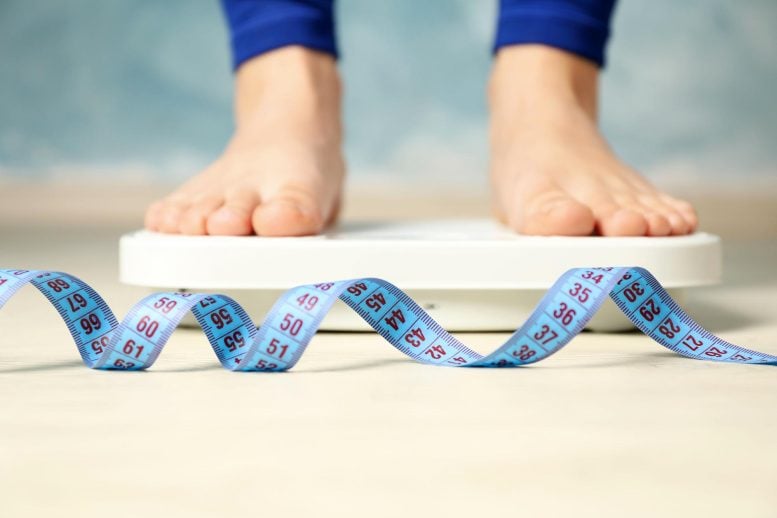Low-Dose Semaglutide: Effective Weight Loss with Fewer Side Effects

New research highlights that adjusted, reduced doses of semaglutide with fitness training prevent weight regain, showing that lower doses are equally effective and sustainable.
Recent studies presented at the European Congress on Obesity (ECO) in Venice, Italy, highlight the benefits of individualized dosing of semaglutide in a weight loss program. The study, conducted by Embla, a digital weight loss clinic with bases in Copenhagen, Denmark and London, UK, evaluates patients who drop medication when they reach their target weight. Dr. Henrik Gudbergsen, principal investigator and Chief Medical Officer at Embla, led the research.
It found that low doses were as effective as high doses and that gradually reducing the medication while focusing on lifestyle changes to prevent weight gain again.
Glucagon-like peptide-1 (GLP-1) receptor agonists such as semaglutide are very effective in helping people lose weight. By mimicking the action of a hormone called GLP-1, they reduce appetite and feelings of hunger, delay the emptying of food from the stomach, and increase feelings of fullness after eating.
However, they can cause side effects such as diarrhoea, nausea, vomiting, dizziness and headaches and many patients quickly regain much of the weight they lost after that they stop taking medicine.
However, recent research shows that patients who receive nutrition and exercise training and support to deal with issues related to emotional eating, for example, along with their weight loss medication ‘ body, they are less likely to gain weight again. Some studies also show that gradually coming off the medication can help prevent weight gain.
Embla researchers were interested in whether it would be possible to change the dose of semaglutide to reduce side effects, while achieving weight loss.
They also wanted to know if patients who dropped semaglutide, by gradually reducing their dose to zero, regained weight after complete withdrawal.
Do-it-yourself semaglutide dosing
A real-world cohort study included 2,246 Danish subjects (79% female, median age 49 years, median BMI 33.2, median body weight 97kg/15st 4lb) who are enrolled in the Embla app-based weight management program, available in Denmark and the UK.
The program included advice from a nutritionist on eating well, increasing exercise, and overcoming mental barriers to weight loss, access to doctors, nurses and psychologists through the app, and weight loss drug semaglutide (Ozempic or Wegovy).
A typical dosing schedule, where a low dose of semaglutide (0.25 mg once a week for Ozempic and Wegovy) is increased every four weeks for 16 weeks to a high dose of 2 mg for Ozempic and 2.4mg for Wegovy (which the patient left until the end of the treatment), were designed for individual patients to reduce side effects.
Patients received the lowest effective dose and an increase was considered only if they stopped continuing. If they maintained a weekly weight loss > 0.5% of their body weight and had controllable levels of side effects and hunger, they stayed on the current dose. The average maximum dose of semaglutide was 0.77mg.
After 26, 64, and 76 weeks, 1,392, 359, and 185 patients, respectively, were still participating in the program.
The average weight loss was 14.8% (14.8kg / 2st 4lb) at week 64 and 14.9% (14.9kg / 2st 4lb) at week 76.
During the program, patients used approximately one-third of the amount of semaglutide used in the standard treatment schedule (36.1% of the recommended cumulative dose at week 64 and 34.3% at week 76).
All 68 patients with weight reported at week 64 lost >5% of their body weight and 58/68 (85.3%) lost >10% of their body weight the foundation.
Further analysis revealed that patients’ weight was the same, regardless of their initial BMI or the total amount of semaglutide used.
Side effects included nausea, vomiting, and abdominal pain but were mild and short-lived.
“Our results show that weight loss can be achieved regardless of the initial BMI and the amount of semaglutide used,” says Dr Gudbergsen.
“Using a lower dose of semaglutide is cheaper for patients, results in fewer side effects and helps ensure that the drug’s products, which are still limited, go further.”
Semaglutide is reduced
353 of 2,246 patients (83% female, median age 49, average BMI 31.5, average weight 92kg / 14st 7lb) started to “taper off” semaglutide after reaching their weight they are heavy. This involved gradually reducing their dose to zero over an average of nine weeks, while receiving diet and exercise training (the usual practice is to stop semaglutide suddenly, while tapering is done, it would be two to eight weeks).
The average weight loss during the nine weeks of the diet was 2.1%.
240 of 353 patients developed semaglutide to zero. Data from 26 weeks after reaching zero were available for 85 participants. Instead of gaining weight after stopping the drug, their weight was remained stable (average weight loss of 1.5% after they completely quit the drug).
46 of 240 patients restarted semaglutide after stopping. The average weight gain from discontinuation to restarting the drug was 1.3%.
The researchers concluded that the patients who dropped semaglutide maintained a stable body weight for the first 26 weeks.
Dr Gudbergsen says: “A combination of supportive lifestyle changes and weight reduction allows patients to avoid weight gain after coming off semaglutide.
“A patient’s appetite returns when they stop using the drug and if they stop using it suddenly, they may have difficulty resisting their cravings. However, if they stop slowly, and have increased their awareness and understanding of healthy lifestyle and eating habits, their hunger and satiety will be more manageable, making it easier for them to maintain the weight of ‘ beautiful bodies.
“Meanwhile, the low high rate creates a great need for patients to engage in lifestyle changes that support the entire program, which should help to lose weight and prevent it.”
References: “Treatment targeting in obesity management: real-world evidence from the weight management program (TRIM)” by Søren Seier, Kine Stamp Larsen, Josefine Balck, Jesper Pedersen, Konstantinos Lymperis and Henrik Gudbergsen, April 2024, European Congress on Obesity (ECO2024).
“Limiting semaglutide to the most effective dose: real-world evidence from the weight management program (TAILGATE)” by Søren Seier, Kine Stamp Larsen, Jesper Pedersen, Jorne Biccler and Henrik Gudbergsen, April 2024 , European Congress on Obesity (ECO2024) .
#LowDose #Semaglutide #Effective #Weight #Loss #Side #Effects
